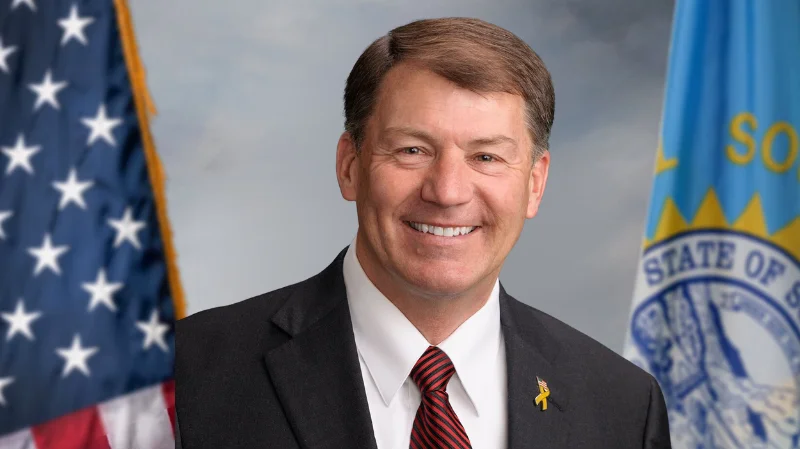Senator Mike Rounds, US Senator for South Dakota | Official U.S. Senate headshot
Senator Mike Rounds, US Senator for South Dakota | Official U.S. Senate headshot
U.S. Senator Mike Rounds (R-S.D.), chairman of the Senate Banking, Housing, and Urban Affairs Committee’s Subcommittee on Securities, Insurance, and Investments, delivered opening remarks at a hearing focused on artificial intelligence (AI) in financial services. The hearing, titled “Guardrails and Growth: AI’s Role in Capital and Insurance Markets,” is the first for the subcommittee in the 119th Congress with Rounds as chairman.
The session examined how AI is changing capital markets and insurance industries, as well as Congress’ role in encouraging innovation while ensuring transparency and accountability. Witnesses included Kevin Kalinich of Aon, Tal Cohen of NASDAQ, and Dr. David Cox from IBM Research.
“We need regulatory frameworks that both support innovation and protect consumers,” said Rounds. “As AI continues to evolve, regulators also have an opportunity to modernize their own operations. AI can help agencies conduct smarter supervision, reduce unnecessary burdens on smaller institutions, and focus resources where they’re most needed. There’s a real opportunity for public-private collaboration in this space, and I hope today’s hearing helps us think more clearly about how to make that happen.”
Rounds thanked Ranking Member Warner for his partnership on the subcommittee and recognized the expertise of the witness panel.
During his remarks, Rounds noted that AI is already making a significant impact across financial systems. In capital markets, firms are using AI to analyze large volumes of data for investment decisions and trade execution. Asset managers are leveraging AI to identify risks and opportunities not visible through traditional tools, while exchanges use it for market surveillance to detect manipulation.
In insurance, companies are applying machine learning to structured data such as claims histories to better assess risk profiles. These advances help insurers price policies more accurately and expand coverage options.
However, Rounds acknowledged challenges remain: “That said, underwriting policies for businesses using AI is exceptionally difficult because the insurance market’s understanding of generative and other forms of AI is still in its infancy. More work needs to be done here to provide clarity, whether by Congressional action or through the work of standard setting bodies like National Institute of Standards and Technology or NIST.”
He highlighted fraud prevention as an area where AI has shown measurable results. According to Rounds: “According to the Card Policy Council, one major credit card network’s AI-driven security enhancements have boosted their fraud detection rates by up to 300% and prevented over $50 billion in fraud in just the past three years. Another has blocked over $40 billion in attempted fraudulent transactions.”
Rounds also cited McKinsey findings that suggest AI can reduce fraud detection costs by 30%, improve true-positive detection rates, and decrease false alerts.
To encourage further progress, Rounds announced he is reintroducing the Unleashing AI Innovation in Financial Services Act alongside Senators Heinrich, Kim, Tillis, and House Financial Services Chairman French Hill. The bipartisan bill would create a venue for financial institutions and regulators to jointly test new AI projects without applying outdated regulations.
Rounds criticized previous regulatory efforts he viewed as overly restrictive: “Last Congress, former SEC Chair Gary Gensler proposed the Predictive Data Analytics Rule which...would have imposed sweeping, unclear restrictions on financial firms developing or deploying AI...That rule would have slowed innovation, raised compliance costs, and locked out smaller players.”
He reiterated calls for balanced regulation: “We need regulatory frameworks that both support innovation and protect consumers.” He concluded by emphasizing opportunities for modernization within regulatory agencies through adoption of new technologies.
The hearing marks an early step by lawmakers toward shaping policy around emerging uses of artificial intelligence in finance.




 Alerts Sign-up
Alerts Sign-up